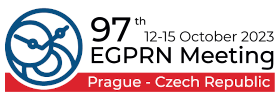Digital skills and tools in cancer care: needs and gaps of clinical professionals, non-clinical professionals and patients/caregivers
David Liñares Mariñas, Ana Clavería, Jean Yves Le Reste, Radost Assenova, Ljiljana Majnaric, Péter Torzsa, Philip Domeyer, Noemí López, Maria Jose Fernandez Dominguez, Andreas Charalambous
Keywords: Cancer care, digital skills, digital literacy and the delphi method
Background:
The European institutions have identified the need to develop an advanced training programme for clinical and non-clinical professionals, equipping them with the digital skills needed to exchange information more efficiently and effectively with cancer patients and other professionals. As a result, projects such as TRANSiTION (id:101101261) have been promoted.
Research questions:
1) to address the needs and gaps of end-users involved in cancer care (i.e., clinical professionals, non-clinical professionals, and patients/caregivers) in terms of digital skills and tools. 2) to understand in detail the use and attributes of digital solutions
Method:
Prospective cross-sectional observational study. For the first question, a survey with the use of a modified RAND methodology will be conducted. An ad hoc questionnaire consisting of self-developed questions will be carried out, comprising five thematic blocks: 1) 10 socio-demographic variables (sex, age, etc.); 2) 43 items to analyse perceived digital skills; 3) 10 items to assess digital skills training; 4) 36 items to assess available digital resources and tools. For the second question, 9 scenarios will be identified with a discrete choice experiment methodology and selected by RAND survey. In the first round, scoring will be done individually; in the second round, participants will be informed of the results of the first round and online discussion and a new assessment will be possible. Finally, the degree of agreement (median) and disagreement (percentages of extreme values) will be analysed, as well as an Importance-Performance Analysis (IPA) will be used.
Results:
A final sample of 73 clinical professionals, 37 non-clinical professionals and 32 patients/caregivers from at least 15 different EU countries was recruited by convenience sampling. The first round of the survey has been launched. The data will be analysed in September.
Conclusions:
Points for discussion:
What methods of consensus are of interest in international research?
What difficulties in recruiting participants have arisen?
#136

